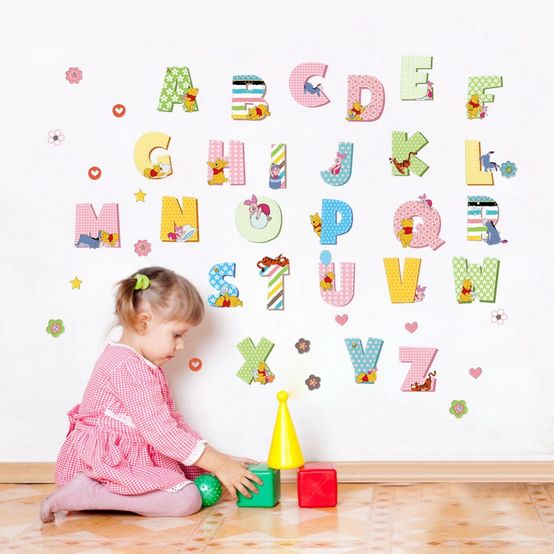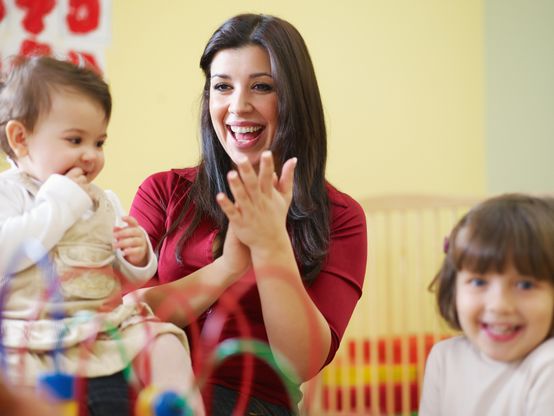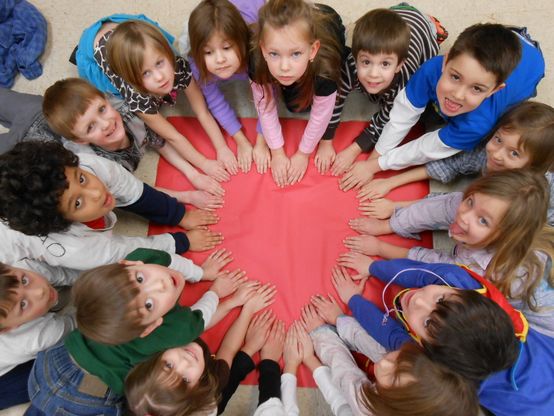English kindergarten teachers
The number of English-language kindergartens continues to grow each year in Russia. Parents strive to raise a bilingual or polyglot kid, so they send their children to kindergartens to learn foreign languages at the age of 1.5-2 years.
With the growth of private kindergartens, competition for parents and students also increases. Kindergartens that have teachers from the UK among their staff have an advantage. A teacher from England for preschoolers and a professional English nanny in a nursery will not only have a positive effect on educational services, but also enhance the prestige of the kindergarten.

Today there are from 30 to 100 private chilcare companies in every administrative district of Moscow. All kindergartens offer English language classes daily or several times a week
What are the criteria for picking an English teacher/tutor or a nanny for your kindergarten?
Teachers from England are engaged not only in teaching English, but also in developing the creative and intellectual abilities of children, as well as teaching them manners and etiquette. An English primary school teacher is a certified specialist with good grammar and distinct pronunciation. The standard requirements for a teacher are the following: major in pedagogy or linguistics, experience working with children in preschool settings in the UK, and additional expertise in early childhood development.
The best choice for a bilingual kindergarten is a qualified nanny with experience working with children from 2 to 4 in nurseries and kindergartens in the UK. An English nanny working in a nursery always has a certificate of completion of medical courses like a first aid certificate and specialised education in the field of caring for young children.

Tuition fees in English-speaking schools and kindergartens depend on many factors. One of the top priorities is professional staff. Parents who are ready to spend 70-150 000 rubles on their child’s tuition monthly, will certainly want to know if there are any native speakers working in kindergarten.
What salary and conditions does an English nanny or preschool teacher expect?
From our experience, the following working conditions serve as a guarantee of high quality of services provided by an employee:
- For a ten-hour working day, five working days a week, the average weekly earnings should be about 700 British pounds;
- Qualifies professionals expect to be reimbursed for flights, visa processing, and provided with accommodation;
- In this case, you can guarantee the selection of a highly qualified employee with excellent recommendations and the necessary work experience.
I need English nannies and preschool teachers. What do I do?
It is almost impossible to find the right specialist on your own. When looking for a job in Russia, a qualified English child care practitioner or a preschool teacher usually contacts staffing agencies. If you are interested to find out more and hire a professional, we will find the right specialists for you. We charge 20% of the annual income of each placed candidate (nannies, teachers, tutors, governesses), regardless of the expected period of work. In case of mass recruitment, discounts are provided.
All candidates undergo a multi-stage selection process. Any native English applicant first talks with the agency’s recruitment manager, gets tested psychologically, and sends us his or her diplomas and certificates for verification. We get in touch with applicants’ previous employers and check references, as well as check whether a candidate has a history of criminal offences (DBS check).If necessary, in addition to hiring, EnglishNanny will provide full visa and consulting support. This is extremely important when working with foreign specialists in Russia.

English Nanny has a lot of experience mass recruiting English teachers and teachers all over the world. In January 2016 within two weeks we found five teachers for language schools in Yuzhno-Sakhalinsk. We selected senior English teachers and — bilingual English teaching assistants Spanish, German and Italian.







